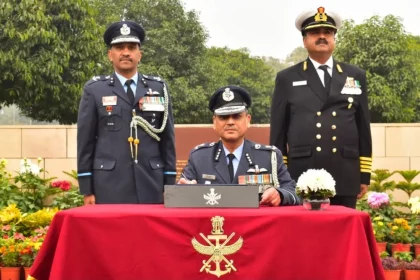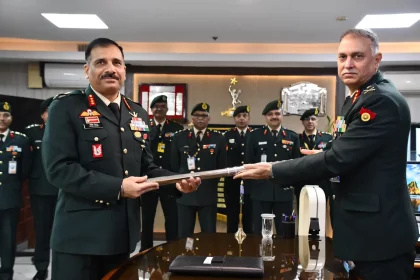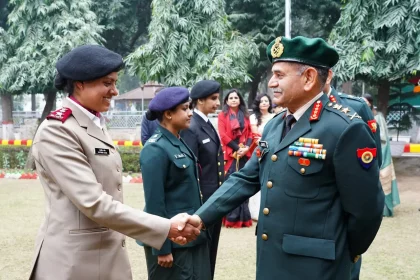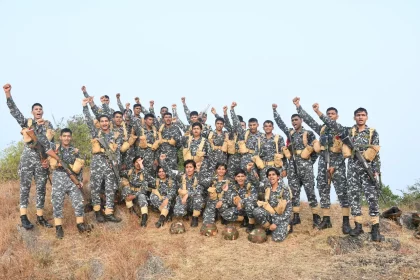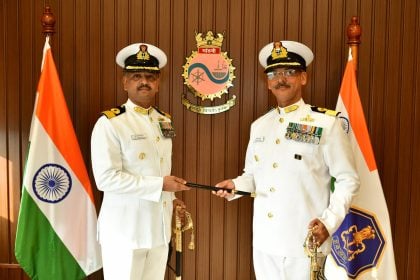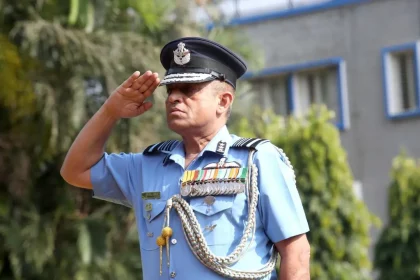Air Marshal Rahul Bhasin Assumes Charge as DG (WS) Appointment, Pays Homage at Amar Jawan Jyoti
Newly appointed DG (Weapon Systems) honours the supreme sacrifice of fallen heroes, reaffirming the Indian Air Force’s commitment to duty,…
Lt Gen Vivek Dogra Assumes Charges As Senior Officer-in-Command & Senior Colonel Commandant, Corps of Signal
Newly appointed Senior Officer-in-Command and Senior Colonel Commandant reaffirms the Corps of Signals’ commitment to honouring sacrifice, service, and inspiration…
COAS General Upendra Dwivedi Visits Base Hospital Delhi Cantt on New Year 2026
Army Chief extends New Year wishes to soldiers and veterans, lauds medical and paramedical staff for their dedication and compassionate…
Outdoor Training Camp ‘Sentinel’ Conducted for Agniveers at Madukkarai Range, Coimbatore
Sentinel camp focuses on building endurance, resilience, teamwork and core naval values among Agniveers through challenging outdoor training.
Commodore Aashish Sharma Takes Over Command of INS Mandovi
Experienced Communications and EW specialist assumes charge of the premier naval training establishment, reinforcing continuity and excellence in sailor training.
Air Marshal Nagesh Kapoor to Take Over as Vice Chief of the Air Staff on January 1, 2026
Combat-tested fighter ace and Operation Sindoor leader to assume second-highest post in the Indian Air Force, strengthening strategic leadership at…

